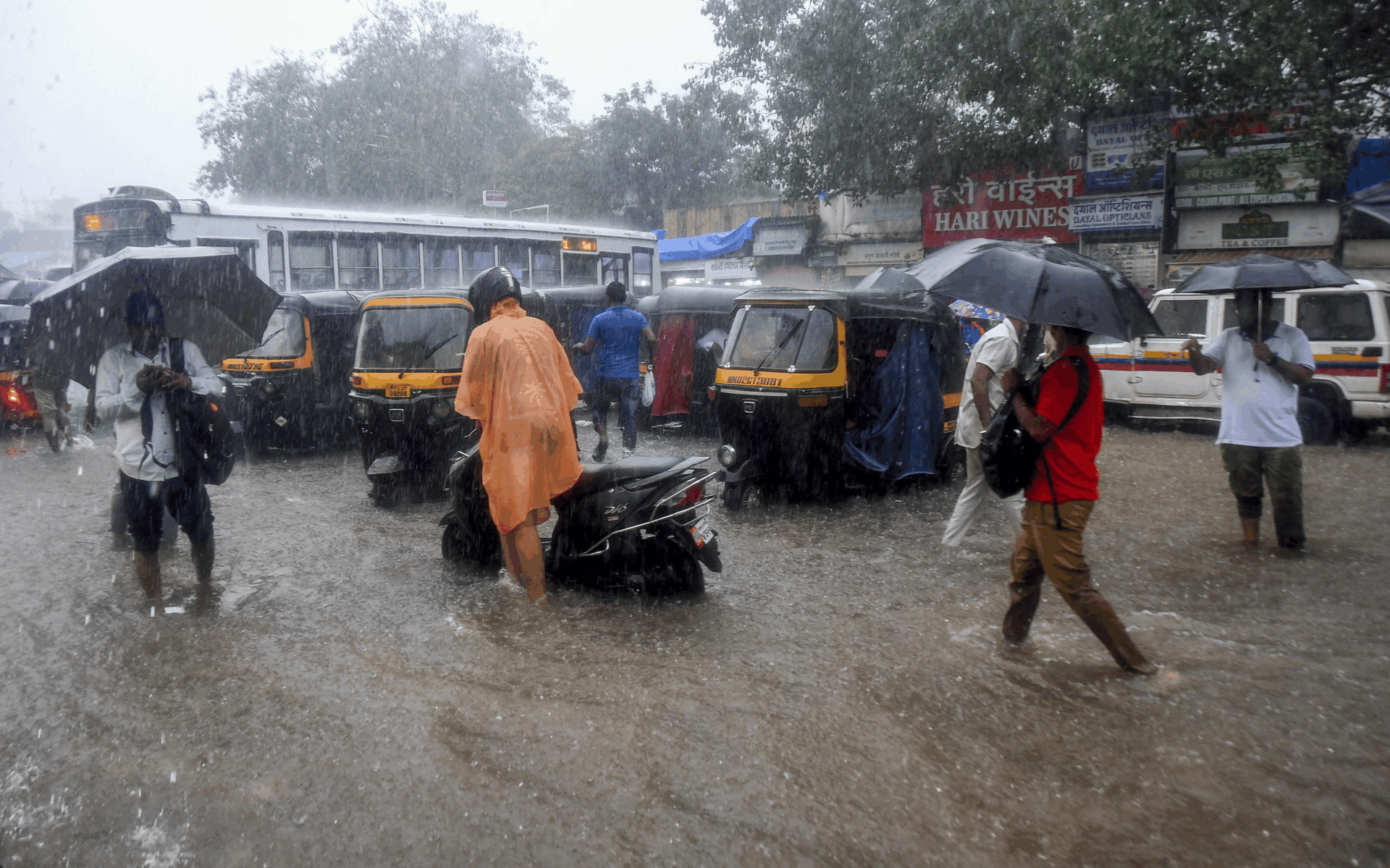Mumbai is bracing for a significant downpour, with meteorological agencies predicting thunderstorms and moderate to heavy rainfall across the metropolis.
This weather forecast has prompted concerns, notably from stakeholders in the Indian Premier League (IPL), who have called for a crucial match scheduled in the city to be relocated due to the high probability of disruption. Civic authorities in Mumbai have indicated a generally overcast sky with persistent rains expected to impact the city and its suburban areas. Data reveals that the city has already experienced substantial rainfall in the preceding 24 hours, with the western suburbs recording the highest accumulation. Residents are also cautioned about impending high tides, which could exacerbate waterlogging issues in low-lying areas.
The situation extends beyond Mumbai, with Telangana under a yellow alert as various parts of the state witness heavy showers. Hyderabad experienced a sudden deluge, leading to waterlogged streets and traffic disruptions, underscoring the vulnerability of urban infrastructure to intense rainfall events. In neighbouring Karnataka, the weather situation has taken a more severe turn, with a red alert issued for seven districts. The intensity of the rainfall has already manifested in incidents such as the collapse of hoardings in Pune due to strong winds, resulting in damage to vehicles. Fortunately, no casualties were reported in these incidents. Additionally, Bengaluru continues to grapple with the aftermath of previous heavy rains, with areas like Sai Layout remaining significantly waterlogged, highlighting persistent drainage challenges in rapidly urbanising centres. The prolonged waterlogging has raised concerns about a potential increase in waterborne and respiratory illnesses, placing a strain on local healthcare facilities.
Down south, Kerala is on high alert, with an orange warning issued for Kasaragod and Kannur districts, anticipating very heavy rainfall in the coming day. Other districts are under a yellow alert for isolated heavy rains. Simultaneously, conditions are becoming increasingly favourable for the onset of the monsoon over Kerala within the next few days, a crucial period for the region’s water security and agricultural activities. Further inland, the Marathwada region of Maharashtra has tragically reported a significant number of fatalities due to unseasonal rain-related incidents this year. Extensive damage to agricultural land has also been recorded, impacting the livelihoods of numerous farmers. This underscores the increasing frequency and intensity of extreme weather events and their devastating consequences on both human lives and economic stability.
A low-pressure area is currently forming over the east-central Arabian Sea, off the North Karnataka-Goa coast. Forecasts indicate that this system is likely to intensify into a depression as it moves northwards, potentially influencing weather patterns along the western coast and further inland. These widespread weather disturbances across India highlight the urgent need for resilient urban planning and infrastructure development that can withstand the increasing challenges posed by climate change. Sustainable drainage systems, the preservation of natural water bodies, and stringent building regulations are crucial to mitigate the impacts of heavy rainfall in urban centres. Furthermore, proactive measures to support vulnerable communities, particularly those residing in low-lying areas and informal settlements, are essential to ensure equitable resilience in the face of these environmental challenges. The focus must be on creating eco-friendly and sustainable cities that prioritise the safety and well-being of all residents amidst a changing climate.
Also Read :Mumbai Rains Highlight Urban Climate Vulnerability


